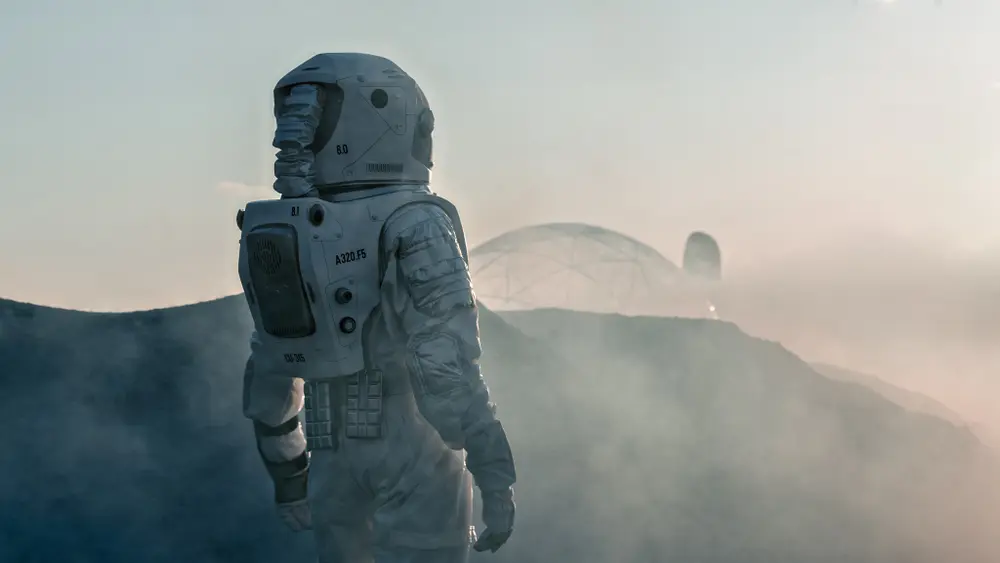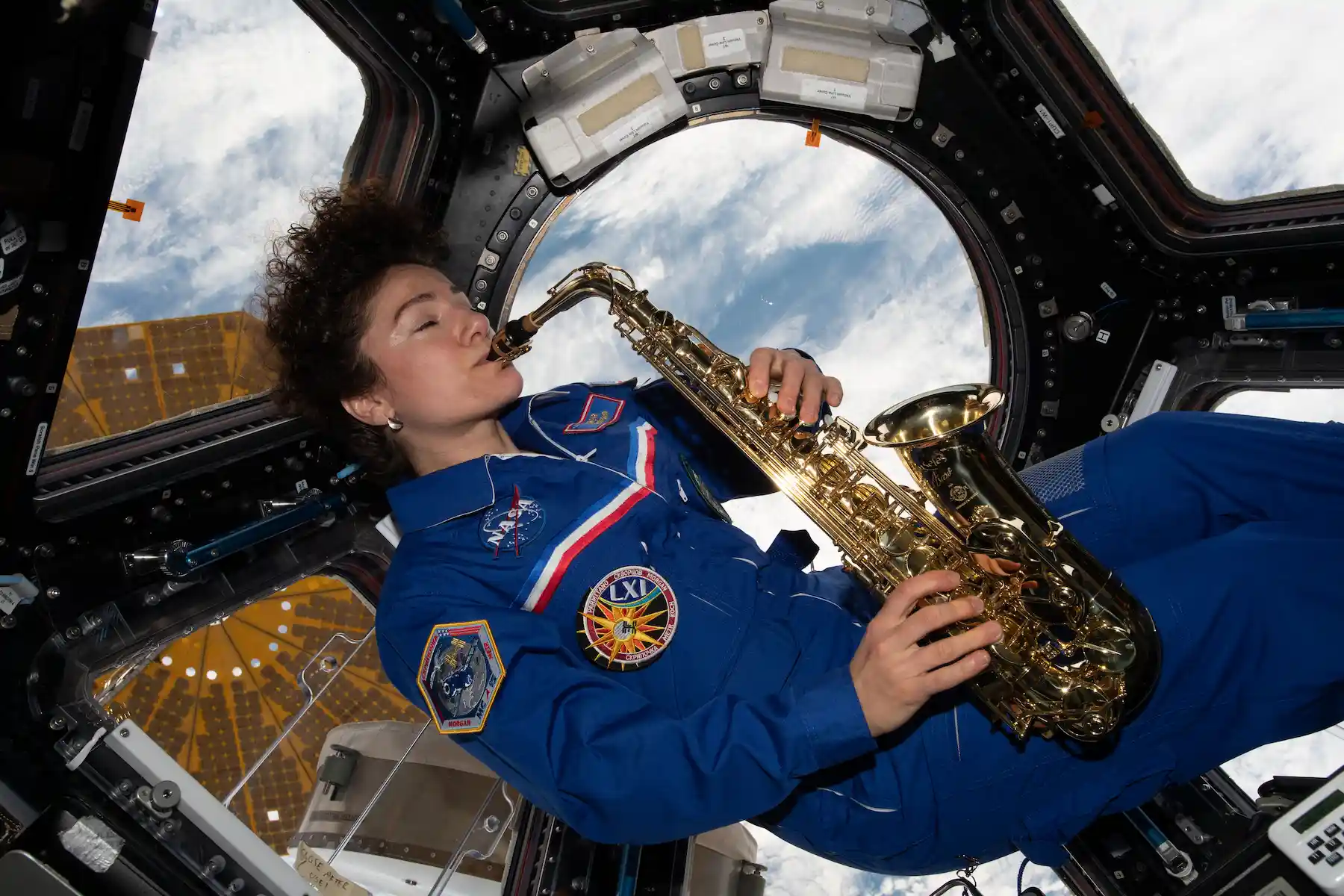Space tourists are not astronauts

Taking space selfies might be a stellar experience, but it's not a stellar career.
In the age of commercial space travel, the line between astronauts and space tourists has become increasingly blurred. Companies like SpaceX, Blue Origin, and Virgin Galactic are making space tourism a reality, allowing private individuals to experience the thrill of zero gravity and the awe-inspiring view of Earth from above.
While these journeys are undoubtedly groundbreaking, they raise an important question: Does a brief sojourn in space make one an astronaut? The answer is a resounding "no," and the distinction is not merely semantic.
While the term "astronaut" has historically been reserved for professionals who undergo rigorous training to conduct missions in outer space, the lines are blurring. Some argue that anyone who leaves Earth's atmosphere should earn the title, but this perspective dilutes the years of preparation, the mastery of complex tasks, and the acceptance of substantial risks that professional astronauts undertake.
This article will argue that the label "astronaut" should be reserved for those who have met specific professional standards, not just anyone who can afford a ticket to space.
Navigating the Semantic Space
Like many of the words used in the scientific world, the name attributed to the brave people sent to space takes its root in ancient Greek. The word Astronaut is made of the prefix “Astro” which means stars and the suffix “naut” which means sailor. An astronaut is essentially a star sailor.
And, if you look up the definition of the word “Astronaut” on the Merriam-Webster website, it offer two definition:
- “a person whose profession is to travel beyond the earth's atmosphere”
- “broadly : any person who travels beyond the earth's atmosphere”
The dual definitions from Merriam-Webster highlight the tension between a traditional, profession-based understanding of the term and a broader, more inclusive interpretation.
This tension is particularly relevant today, as space travel is no longer solely the domain of highly trained professionals employed by government space agencies.
Some argue that the democratization of space travel should be reflected in a more inclusive definition of "astronaut." While inclusivity is important, it should not come at the expense of clarity and precision. The term "astronaut" carries with it assumptions about training, responsibility, and expertise—criteria that space tourists simply do not meet.

Unpacking the Astronaut Identity
Being an astronaut is far more than just traveling to space; it's a role steeped in rigorous qualifications, responsibilities, and attributes. Astronauts typically have advanced degrees in scientific fields and undergo years of specialized training that includes piloting spacecraft, conducting spacewalks, and performing scientific experiments in zero-gravity.
Their preparation also encompasses basic medical training and emergency preparedness, equipping them to handle everything from equipment malfunctions to medical crises.
Physically and mentally resilient, astronauts must be fit enough to withstand the extreme conditions of space travel and psychologically stable to cope with the stresses of long-duration missions.
They bear the responsibility of fulfilling specific mission objectives, maintaining complex equipment, and collecting valuable data. Often, they work in multi-national teams, requiring exceptional communication skills and cultural sensitivity.
Beyond their technical roles, astronauts serve as ambassadors for the human race, representing humanity's quest for knowledge and its aspirations for peaceful cooperation in space. Willing to take extreme risks, they may spend up to six months in confined spaces, far from home.
In essence, the term "astronaut" encapsulates a unique blend of academic prowess, technical expertise, psychological fortitude, and a willingness to push the boundaries of human capability.
In light of this complex and demanding set of qualifications and responsibilities, it's evident that a brief, 10-minute jaunt in a commercial spacecraft falls far short of earning one the title of "astronaut." The designation should remain exclusive to individuals who have met the stringent criteria that this unparalleled profession requires.
I essentially look at it this way: I may have flown on a plane many times during my lifetime, spending hours upon hours seated in a chair, soaring through the air. Despite this experience, would I feel qualified to be called an aviator? 100% no, because I understand that the title of "pilot" entails specialized training, skills, and responsibilities far beyond just being on a plane.

A Legal Perspective
During my research for this article, I came across a white paper written by Dipayan Bhattacherjee that seems to challenge the straightforward application of the term "astronaut" to space tourists, given the special statuses and responsibilities accorded to astronauts under international law.
Envoys of Mankind
According to the Outer Space Treaty (OST) of 1967, astronauts are considered "envoys of mankind in outer space." This designation brings with it certain ethical and legal responsibilities that are more comprehensive than a mere trip to space. Being an envoy implies representing humanity, a role which space tourists, who pay for their journey, are not trained or prepared for.
Outer Space Treaty (OST)
Article V of the OST explicitly states that astronauts are to be regarded as envoys of mankind. This gives them a special status that obligates other nations to assist them in emergencies. This status is aligned with the responsibilities and training astronauts undergo, which are far more extensive than the orientation provided to space tourists.
Agreement on the Rescue of Astronauts
This agreement, also known as the "Rescue Agreement," elaborates on the OST by specifying that astronauts must be safely returned to their home country in case they land in foreign territory. The agreement is designed to protect individuals who are on missions that contribute to human knowledge and scientific discovery, not tourists on a commercial venture.

The Dilution of Status
If space tourists are allowed to be called astronauts, it would dilute the special status accorded to astronauts under international law.
This could lead to complications, such as:
Dilution of Responsibilities
If space tourists are considered astronauts, then the ethical and legal responsibilities associated with being an "envoy of mankind" would become diluted and less meaningful.
Operational Complexities
Including space tourists under the "Rescue Agreement" would impose an undue burden on states to rescue individuals who are not contributing to scientific missions but are rather part of a commercial venture.
A Benchmark Unreached
The Kármán line is an internationally recognized boundary that marks the edge of Earth's atmosphere and the beginning of outer space. The line is named after Theodore von Kármán, a Hungarian-American aerospace engineer who calculated that around this altitude, the atmosphere becomes too thin to support aeronautical flight.
Among all the private spacecraft that have been launched to date, none have made it past the Kármán line. This raises a legitimate question about whether these flights can truly be categorized as journeys into space.

A word on astronauts wings
"Astronaut wings" are a special badge or insignia awarded to individuals who have completed astronaut training and have flown in space. The design and criteria for earning astronaut wings can vary depending on the organization that awards them.
The Federal Aviation Administration (FAA) in the United States has its own set of criteria for awarding what it calls "Commercial Astronaut Wings." From 2004 until 2021, The FAA awarded those wings to individuals who had flown on commercially operated space flights and met specific criteria, such as reaching an altitude where weightlessness occurs and contributing to the flight's safety and mission objectives. The program was recently retired.
While some of the passengers from early private space ventures like Blue Origin and Virgin Galactic have earned these wings, it's crucial to understand that they are not granted the official title of 'astronaut'.
Bottom line
As space tourism becomes increasingly commercialized, it is imperative to maintain the distinction between astronauts and space tourists. By safeguarding this differentiation, we not only maintain the depth and significance of the title "astronaut," but also honor those who have committed, and in some tragic cases, lost them, their lives to further human understanding and exploration of space.
More Astronaut Stories
This page is part of our collection of articles about astronauts. If you enjoyed the read, then you'll love the following articles.
 This is what would happen if an astronaut removed their helmet in spaceSpoiler alert: nothing good. Read More
This is what would happen if an astronaut removed their helmet in spaceSpoiler alert: nothing good. Read More
 This is how much money astronauts earn Are the risks worth the money? Read More
This is how much money astronauts earn Are the risks worth the money? Read More
 Can astronauts vote from space? Yes! And here's how. Read More
Can astronauts vote from space? Yes! And here's how. Read More
 The Fascinating World of Analog AstronautsProving you don't have to leave Earth to be out of this world! Read More
The Fascinating World of Analog AstronautsProving you don't have to leave Earth to be out of this world! Read More
 Can Astronauts Bring Personal Belongings to Space With Them?Because even in zero gravity, some things keep you grounded! Read More
Can Astronauts Bring Personal Belongings to Space With Them?Because even in zero gravity, some things keep you grounded! Read More 








